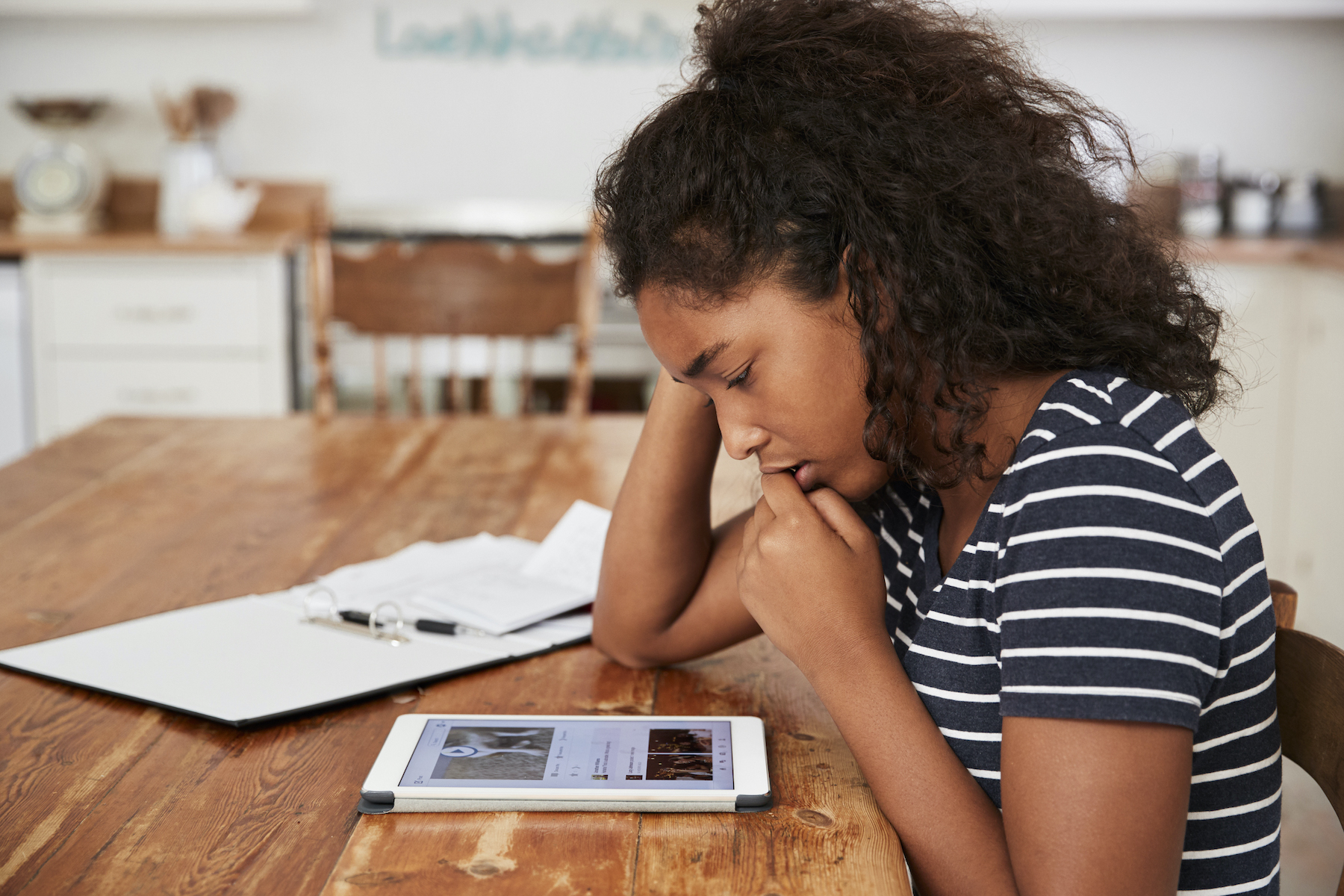The internet can be a great place for children, providing them with the resources they need to supplement their education. It can also help them keep connected with family members and friends. Unfortunately, the internet can also pose many risks to children, including cyber bullying, sexual exploitation and child pornography, sexual predators, identity theft, and access to inappropriate content. Fortunately, there are ways that you can protect your child from the risks of the internet and allow them to enjoy an entertaining and educative online experience.
Make Computer Time Public
Placing your computer in a public location, like the living room or kitchen, will allow you to easily monitor your child’s screen time. If your child has a smartphone or tablet, it might be more difficult to limit or monitor their internet usage. But, many Android and iPhones do have parental settings that allow you to monitor usage.
You can also provide access to multiple internet devices around the house. When you connect your laptop or tablet to theirs, you will be notified when your child receives messages or friend requests. Making their internet experience more public will encourage them to consider the things they are doing online.
Set Limitations on Usage
When it comes to children, many parents would agree that it is better to initially provide them with a safe internet browsing experience, rather than finding out that they are at risk later on. Setting limitations and parental control on the websites and time spent on the internet ahead of time can prevent your kids from ever being exposed to these risks.
Fortunately, there are many tools available to prevent these risks. Parents can use parental control software programs to set limitations such as:
- Limit online time to certain hours
- Limit the overall time spent online
- Ban certain websites
- Notify parents of suspicious internet activity
Your internet service provider (ISP) is one of the first and easiest places to turn to for internet parental controls. Many internet providers provide parents and families with the tools they need to ensure a safe browsing experience for children.
Get Involved
Screen time does not have to be alone time. It is not always easy to understand the risks that new programs present if you are not familiar with the program. With the computer being in a public location, you can easily ask questions and learn more about the internet programs that your child frequents most.
If your child spends their time playing games, ask them questions about the game and what they like about it. If they use the internet to look up information, ask them to tell you something interesting that they have learned. Not only will this allow you to be involved in their internet usage, but it can also be a great way to bond with a child over something they enjoy doing.
In fact, joining in on games or making internet time a family event can be both entertaining and educational. Children have the opportunity to share their interests while learning safe internet habits at the same time. You might even learn a thing or two from your child about the internet or find a game that you can enjoy together.
Getting involved in your child’s internet usage also helps them learn and develop important social skills, like blending the convenience of online communication with in-person communication. It encourages them to develop language skills like verbal and nonverbal communication, while offering them an interactive experience.
Practice Safe Internet Habits
Child safety on the internet requires safe internet habits from the entire family. Not only do safe internet habits set a good example for younger children, but they can also protect your children from becoming a victim of common online threats.
You can practice safe internet habits in your household with the following steps:
- Avoid posting photos of the family publicly
- Avoid posting the families’ personal information, such as phone number, address, names of family members, or the address and name of their school
- Keep upcoming event information private
- Keep the family schedule private
- Vet your children’s friends, especially if they have only interacted with them online. There are tools out there that help track down their social media/email information like Instant Social Report.
It is also important to keep in mind that just because something is private, does not always mean it is actually private. Photos, messages, or anything posted to the internet can easily be retrieved and shared. Certain data should never be shared online, including the name of schools, home addresses, upcoming plans, or social security numbers.
Set Early Expectations and Rules
When you are clear on the rules of internet usage in the household early on, you can manage everyone’s expectations. If you want complete access to your child’s online accounts, notify them ahead of time. If you are not comfortable with your children visiting certain websites, it is important to be clear of these expectations ahead of time.
It can also be helpful to inform children of any expected consequences, such as taking away internet privileges, if they ignore these rules.
A few rules you might use regarding internet usage include:
- Internet time is reserved for certain hours of the day
- Request permission before downloading new apps or programs
- Update parents of any password or login name changes
- Notify parents of messages or emails from unknown users
When you’re clear with internet usage rules from the beginning, you can also better manage disagreements regarding internet use. Children and other family members know what to expect and will design their internet habits around those expectations.
Educate Children On Risks
In addition to monitoring internet use, it is also important to educate children on the risks of the internet. Children are more likely to follow the rules if they understand why they are taking these safety precautions in the first place. Rather than just telling them the things that they are not allowed to do, consider discussing with them why you want them to avoid certain behaviors and what risks are possible.
When you discuss and explore the potential risks with your children, they will be better prepared to navigate these issues as they arise.
When you monitor your children’s internet usage and teach them about safe browsing habits, you can help them to develop internet habits that are safer for the entire family. When you make internet browsing a family activity, your children can also take advantage of the many benefits that the internet offers, without being exposed to the dangerous risks.
If you or your child receive suspicious messages, investigate them thoroughly. Whenever you talk to any stranger online, it’s important to know vital information about who they are. There are tools out there that help track down their social media/email information.




